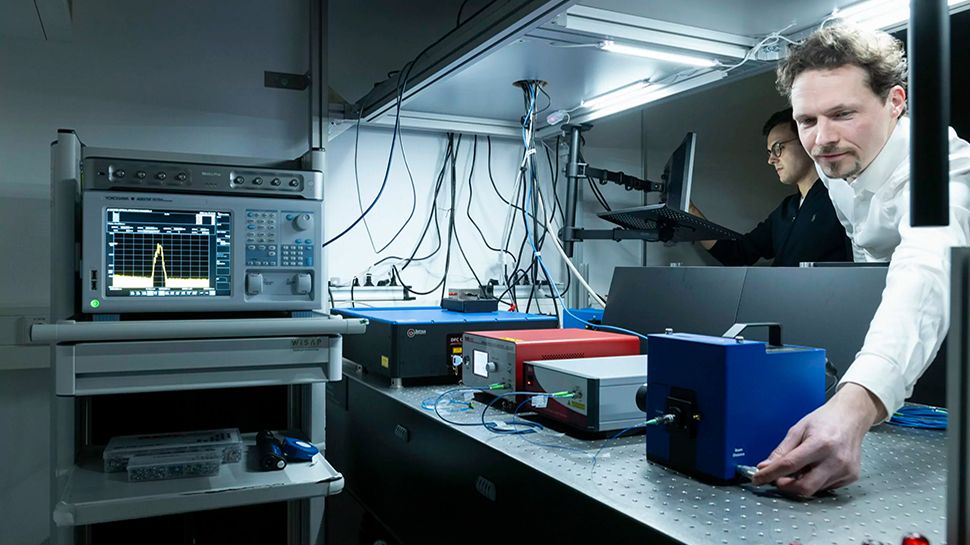In an era where the ecological footprint of large-scale AI systems is increasingly being scrutinized, a team of international scientists has developed a potentially game-changing new solution.
The team, led by Prof. Mario Chemnitz and Dr. Bennet Fischer from Leibniz Institute of Photonic Technology (Leibniz IPHT) in Jena, has built a computer that uses light waves instead of silicon, and it’s all done through a single optical fiber.
The researchers have leveraged the unique interactions of light waves within optical fibers to create an advanced artificial learning system. This clever method eliminates the need for extensive electronic infrastructure, which is a marked departure from traditional systems that rely on computer chips containing thousands of electronic components.
Diagnosing COVID-19 infections
“We utilize a single optical fiber to mimic the computational power of numerous neural networks,” explains Prof. Chemnitz. “By leveraging the unique physical properties of light, this system will enable the rapid and efficient processing of vast amounts of data in the future.”
As Tech Xplore explains, data, whether pixel values from images or frequency components of an audio track, are encoded onto the color channels of ultrashort light pulses. These pulses carry the information through the fiber, undergoing various combinations, amplifications, or attenuations. The emergence of new color combinations at the fiber’s output enables the prediction of data types or contexts.
The team has successfully applied this method in a pilot study to diagnose COVID-19 infections using voice samples supplied by the University of Cambridge. The results achieved a detection rate that surpasses the best digital systems to date.
“We are the first to demonstrate that such a vibrant interplay of light waves in optical fibers can directly classify complex information without any additional intelligent software,” Prof. Chemnitz said.
The paper has been published in Advanced Science.






